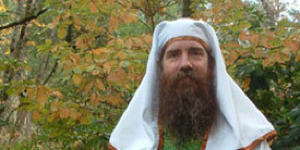The Time of the Seedbearers | John Michael Greer

April 30, 2014 (Archdruid Report) -- Myths, according to the philosopher Sallust, are things that never happened but always are.
With a few modifications, the same rule applies to the enduring narratives of every culture, the stories that find a new audience in every generation as long as their parent cultures last. Stories of that stature don’t need to chronicle events that actually took place to have something profoundly relevant to say, and the heroic quest I used last week to frame a satire on the embarrassingly unheroic behavior of many of industrial civilization’s more privileged inmates is no exception to that rule.
That’s true of hero tales generally, of course. The thegns and ceorls who sat spellbound in an Anglo-Saxon meadhall while a scop chanted the deeds of Beowulf to the sound of a six-stringed lyre didn’t have to face the prospect of wrestling with cannibalistic ogres or battling fire-breathing dragons, and were doubtless well aware of that fact. If they believed that terrible creatures of a kind no longer found once existed in the legendary past, why, so do we—the difference in our case is merely that we call our monsters “dinosaurs,” and insist that our paleontologist-storytellers be prepared to show us the bones.
The audience in the meadhall never wondered whether Beowulf was a historical figure in the same sense as their own great-grandparents. Since history and legend hadn’t yet separated out in the thinking of the time, Beowulf and those great-grandparents occupied exactly the same status, that of people in the past about whom stories were told. Further than that it was unnecessary to go, since what mattered to them about Beowulf was not whether he lived but how he lived. The tale’s original audience, it’s worth recalling, got up the next morning to face the challenges of life in dark age Britain, in which defending their community against savage violence was a commonplace event; having the example of Beowulf’s courage and loyalty in mind must have made that harsh reality a little easier to face.
more
http://worldnewstrust.com/the-time-of-the-seedbearers-john-michael-greer
